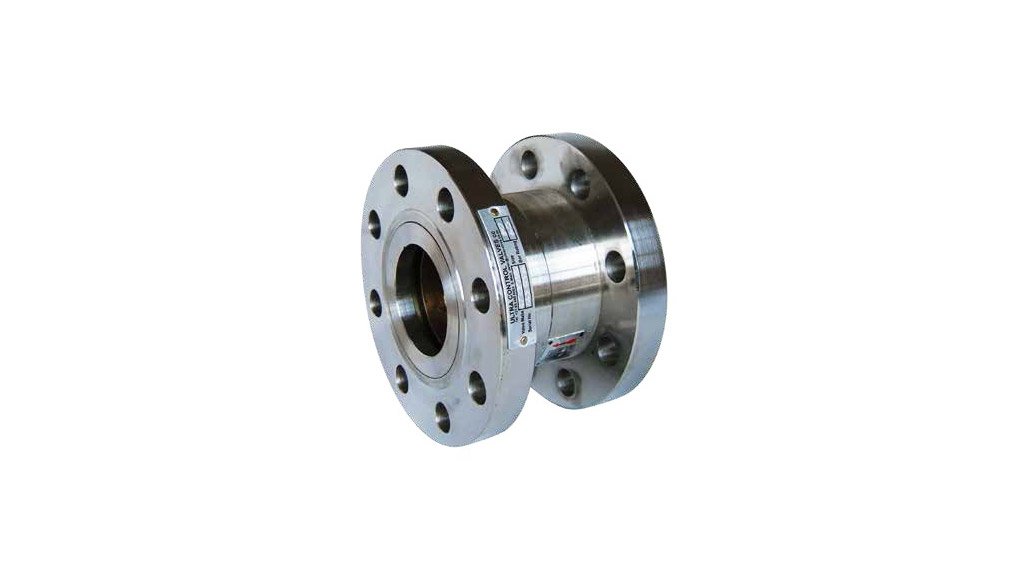Valves range will assist in reducing leaks


KNOWLEDGE IS POWER Ultra Control Valves will launch a course on water hydraulics with a focus on water hammer
Owing to water scarcity, water utility companies should be proactive in ensuring that pipe leaks are reduced and kept at an absolute minimum, says South African valves company Ultra Control Valves managing member Peter Telle.
He adds that, over the past few years, municipalities and water boards have implemented the innovative measure of pressure management.
This involves reducing the water pressure in networks during low-demand periods to reduce leaks using electronic equipment connected to pilot-operated pressure valves (POPRVs) to reset pressures to different levels for different flow rates.
“The problem with this strategy in the South African context is that POPRVs are complicated and there is minimal understanding and maintenance by operators, with the addition of electronic controllers making these valves even more complicated and less user friendly,” says Telle.
To mitigate this challenge, Ultra Control Valves has employed the ratio-reducing pressure reducing valves (RRPRVs) solution, which is relatively new to the local water industry, having been launched only a few years ago.
The RRPRVs have no adjustments that can be easily tampered with and are easier to apply, with no delayed reaction times, low flow instability or vulnerability to dirt.
Telle explains that POPRVs become unstable at low flows, which causes pipes to break and substantial water losses, subsequently resulting in the valves’ achieving the opposite result to what they are intended to do.
However, the installation of RRPRVs is simpler and does not require much engineering or maintenance. With RRPRVs one can simply install a line size valve and not have to do multiple calculations to ensure correct sizing. The valve also does not have small pilots with small orifices which need continuous cleaning and maintenance.
Further, the Maric flow control valves, which reduce water consumption in domestic and industrial applications, have been used extensively in South Africa, although it has recently received more attention because of water shortages, Telle adds.
An innovative municipality in the Western Cape has installed a number of Maric flow control valves in domestic networks as a pilot project. Although the results have not yet been published, it is expected to be “ground-breaking”.
“Imagine a shower or tap flowing with a pressure of 5 bar, which will create a very strong stream of water resulting in high wastage. The Maric in these installations will ensure a “correct” flow and will result in huge water savings,” he says.
The Australian-manufactured valves are made out of polyvinyl chloride plastic, stainless steel or brass and control flow in numerous applications.
The valves are completely tamperproof and ideal for African conditions, with at least a 20-year life span, with the valves seldom requiring maintenance.
“In the correct applications, such as consumer end-points – taps, showers and stand pipes in rural water suppliers – the valves will ensure massive water consumption savings,” he says.
Telle mentions that using Maric flow control valves in strategic positions will limit flows to what is the norm for such a network.
He adds that, owing to the technology still being relatively new to the market, engineers are still cautious in using Maric valves in their applications.
Water utiities’ opting to use these valves in their applications will, however, help to reduce water leaks and prevent pipes from breaking because the valves are designed to control the flow and pressure of the water, he concludes.
Comments
Press Office
Announcements
What's On
Subscribe to improve your user experience...
Option 1 (equivalent of R125 a month):
Receive a weekly copy of Creamer Media's Engineering News & Mining Weekly magazine
(print copy for those in South Africa and e-magazine for those outside of South Africa)
Receive daily email newsletters
Access to full search results
Access archive of magazine back copies
Access to Projects in Progress
Access to ONE Research Report of your choice in PDF format
Option 2 (equivalent of R375 a month):
All benefits from Option 1
PLUS
Access to Creamer Media's Research Channel Africa for ALL Research Reports, in PDF format, on various industrial and mining sectors
including Electricity; Water; Energy Transition; Hydrogen; Roads, Rail and Ports; Coal; Gold; Platinum; Battery Metals; etc.
Already a subscriber?
Forgotten your password?
Receive weekly copy of Creamer Media's Engineering News & Mining Weekly magazine (print copy for those in South Africa and e-magazine for those outside of South Africa)
➕
Recieve daily email newsletters
➕
Access to full search results
➕
Access archive of magazine back copies
➕
Access to Projects in Progress
➕
Access to ONE Research Report of your choice in PDF format
RESEARCH CHANNEL AFRICA
R4500 (equivalent of R375 a month)
SUBSCRIBEAll benefits from Option 1
➕
Access to Creamer Media's Research Channel Africa for ALL Research Reports on various industrial and mining sectors, in PDF format, including on:
Electricity
➕
Water
➕
Energy Transition
➕
Hydrogen
➕
Roads, Rail and Ports
➕
Coal
➕
Gold
➕
Platinum
➕
Battery Metals
➕
etc.
Receive all benefits from Option 1 or Option 2 delivered to numerous people at your company
➕
Multiple User names and Passwords for simultaneous log-ins
➕
Intranet integration access to all in your organisation



















